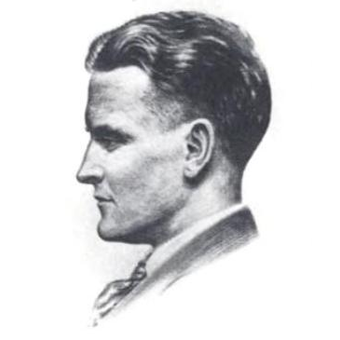Born in 1896 in Saint Paul, Minnesota to an upper middle class Irish Catholic family, Fitzgerald was named after his famous second cousin, three times removed, Francis Scott Key, but was referred to as “Scott.” He was also named after his deceased sister, Jean Scott, one of two sisters who died shortly before his birth. His parents were Mollie (McQuillan) and Edward Fitzgerald.
Scott spent the first decade of his childhood primarily in Buffalo, New York (1898–1901 and 1903–1908, with a short interlude in Syracuse, New York between January 1901 and September 1903). His parents, both practicing Catholics, sent Scott to two Catholic schools on the West Side of Buffalo, first Holy Angels Convent (1903–1904, now defunct) and then Nardin Academy (1905–1908). His formative years in Buffalo revealed him to be a boy of unusual intelligence and drive with a keen early interest in literature, his doting mother ensuring that her son had all the advantages of an upper-middle-class upbringing. In a rather unconventional style of parenting, Scott attended Holy Angels with the peculiar arrangement that he only go for half a day—and was allowed to choose which half.
When Scott was eleven years old, his father was fired from Procter & Gamble, and the family returned to Minnesota, where Fitzgerald attended St. Paul Academy in St. Paul from 1908–1911. His first literary effort, a detective story, was published in a school newspaper when he was 13. When he was 16, he was expelled from St. Paul Academy for neglecting his studies. He attended Newman School, a prep school in Hackensack, New Jersey, in 1911–1912, and entered Princeton University in 1913 as a member of the Class of 1917. There he became friends with future critics and writers Edmund Wilson (Class of 1916) and John Peale Bishop (Class of 1917), and wrote for the Princeton Triangle Club. His absorption in the Triangle—a kind of musical-comedy society—led to his submission of a novel to Charles Scribner’s Sons where the editor praised the writing but ultimately rejected the book. He was a member of the University Cottage Club, which still displays Fitzgerald’s desk and writing materials in its library. A poor student, Fitzgerald left Princeton to enlist in the US Army during World War I; however, the war ended shortly after Fitzgerald’s enlistment.
Pages: 1 2

